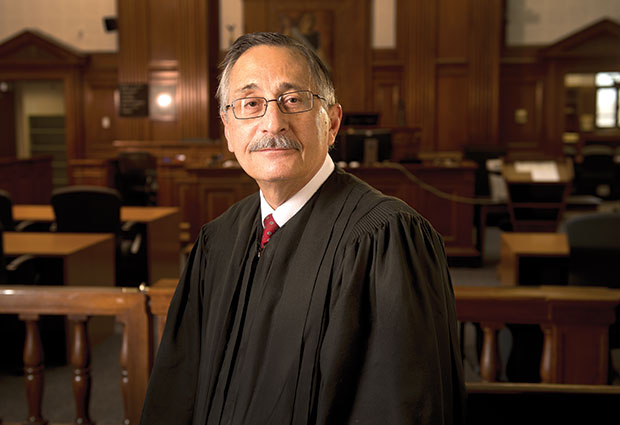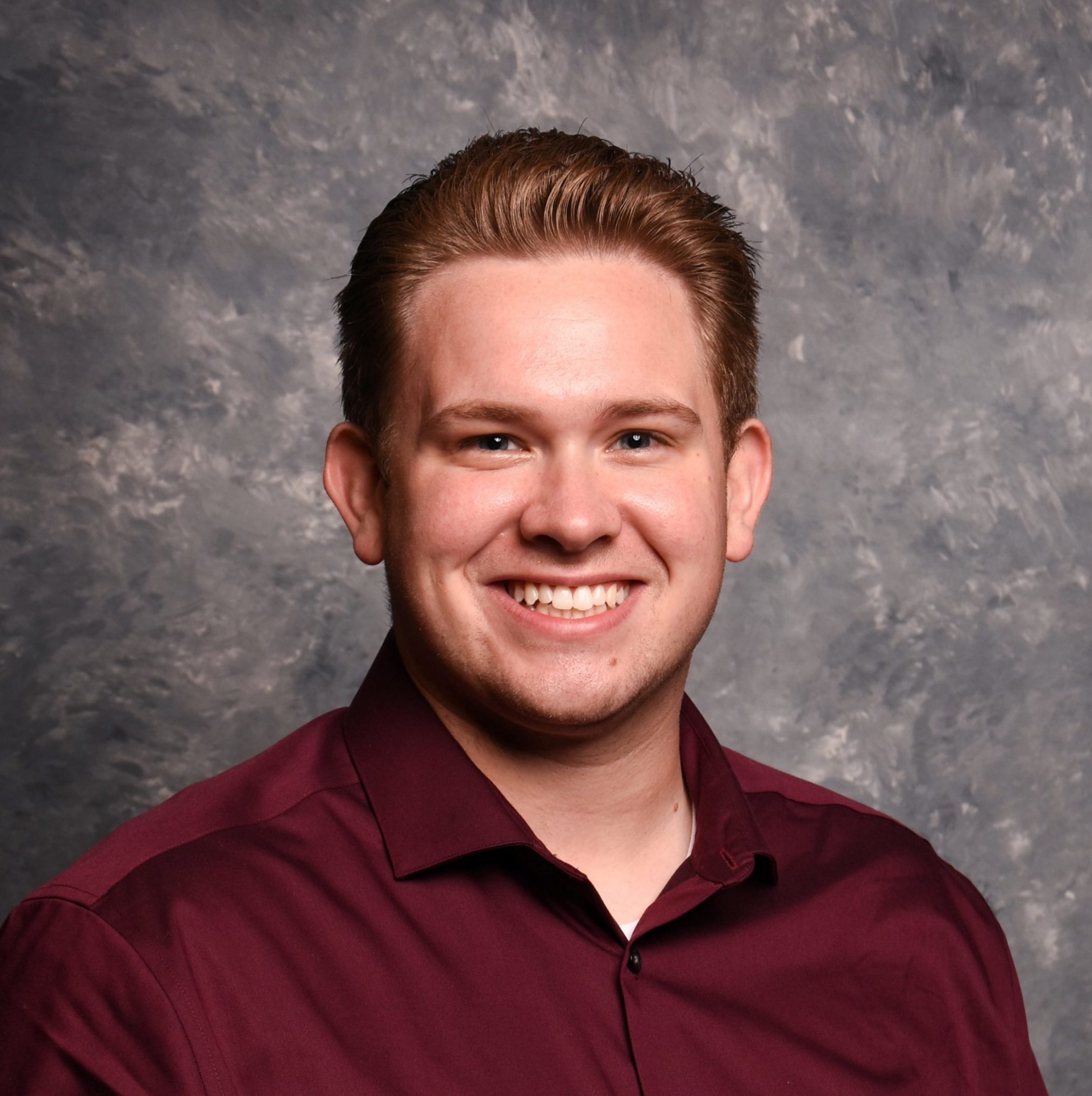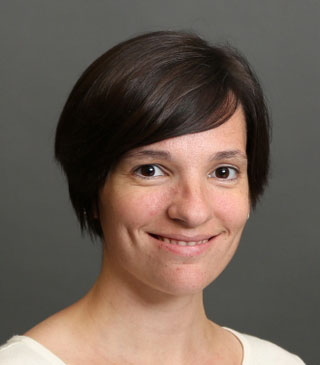Love for public service fuels DiMotto’s decades-long career
By: Erika Strebel, [email protected]//January 26, 2018//
Love for public service fuels DiMotto’s decades-long career
By: Erika Strebel, [email protected]//January 26, 2018//

Before starting law school, Milwaukee County Circuit Court Judge John DiMotto thought his legal career would mostly entail practicing law from behind a desk.
He instead ended up spending most of his more than 40-year legal career in the courtroom.
For 15 1/2 years, DiMotto was in the Milwaukee County District Attorney’s office, where he headed up the sensitives-crimes unit for 9 years, before getting elected to Branch 41 in 1990. Now, after 27 ½ years on the bench, DiMotto will be retiring in February.
His decades-long legal career has been motivated by his love for public service.
“I love the opportunity to help people resolve their disputes, which is what a judge or a lawyer does,” DiMotto said.
“It’s really a way to help people navigate through a difficult time in their life because most people are not comfortable coming into the courthouse or coming to a courtroom because it’s foreign to them.”
In his time on the bench, he has served terms in all six of Milwaukee County Circuit Court’s divisions.
DiMotto has handled various high-profile cases, including presiding over the Badger Guns case, a lawsuit two Milwaukee police officers filed in 2010 against a gun shop in West Milwaukee after they had been shot by a gun sold there.
DiMotto, who graduated from the University of Wisconsin Law School in 1974, was the first person to be featured in the Wisconsin Law Journal’s Asked and Answered feature. When his wife, the Hon. Jean DiMotto, was first elected to the bench in 1997, they became the first couple in the state to have been both elected as judges.
Getting to know DiMotto
Wisconsin Law Journal: You’ve spent terms in all the divisions in Milwaukee County Circuit Court. Which rotation have you enjoyed the most and why?
John DiMotto: I would say it’s the civil division partially because the breadth of what we do scans a very wide and long spectrum. I mean, when you think about it, when you’re in civil court you can handle foreclosure matters, you can handle real estate disputes, you can handle simple or complex contract disputes, personal-injury lawsuits spanning the globe from medical malpractice to an automobile-accident case to a slip-and-fall to products liability.
I love the spectrum because of the challenges that it poses for me. I consider myself a student of the law. I love to learn.
WLJ: What are the biggest challenges of being a judge?
JD: I think the biggest is making sure the decision you make is based on the facts before you and applying the law to the facts. We should never make decisions based on someone’s station in life.
WLJ: What is the most rewarding part about the job?
JD: I think what’s been most rewarding is instances where people have said, ‘I didn’t like the outcome of my case, but you listened to me and heard me and you didn’t brush me aside.’
WLJ: Look a bit forward for me. What do you think is the biggest challenge the state court system faces? And how might it be solved?
JD: I think the biggest challenge for the judiciary throughout the state, and particularly Milwaukee County, is the lack of funding in order to get the job done best as possible. And I don’t’ mean to be critical. I’m not saying the Legislature doesn’t care or the Wisconsin Supreme Court doesn’t care. I think the Legislature cares and our supreme court cares. But in order to get this job done and get it done right, it has to be properly funded.
The Wisconsin judiciary relies a lot on federal funds. I know Chief Justice Roggensack has been concerned about the lack of funding for children programs and how detrimental that can be. And that’s true.
Money is needed in order to fund a program to help people who end up in these courtrooms because of the lack of funding on the outside.
I think as time goes on the crunch of money is going to create problems for the judiciary being able to get the job done in the best way possible.
But I’m very hopeful that the judiciary is going to continue to work together. We have worked for 27 and a half years hand in hand. We help each other.
WLJ: What’s it like living in a two-judge household?
JD: It’s wonderful. As judges, we can’t discuss with lawyers or ask lawyers for their thoughts or opinions or their help. But judges can confer with and can consult with other judges. So it’s been nice to have my own personal mentor in my wife.
Now, when our daughter was growing up, every once in a while she’d say, “Mom and Dad, that’s enough. That’s enough law in this house!”
Legal News
- Wisconsin attorney loses law license, ordered to pay $16K fine
- Former Wisconsin police officer charged with 5 bestiality felony counts
- Judge reject’s Trump’s bid for a new trial in $83.3 million E. Jean Carroll defamation case
- Dozens of deaths reveal risks of injecting sedatives into people restrained by police
- The Latest: Supreme Court arguments conclude in Trump immunity case
- Net neutrality restored as FCC votes to regulate internet providers
- Wisconsin Attorney General asks Congress to expand reproductive health services
- Attorney General Kaul releases update at three-year anniversary of clergy and faith leader abuse initiative
- State Bar leaders remain deeply divided over special purpose trust
- Former Wisconsin college chancellor fired over porn career is fighting to keep his faculty post
- Pecker says he pledged to be Trump campaign’s ‘eyes and ears’ during 2016 race
- A conservative quest to limit diversity programs gains momentum in states
WLJ People
- Power 30 Personal Injury Attorneys – Russell Nicolet
- Power 30 Personal Injury Attorneys – Benjamin Nicolet
- Power 30 Personal Injury Attorneys – Dustin T. Woehl
- Power 30 Personal Injury Attorneys – Katherine Metzger
- Power 30 Personal Injury Attorneys – Joseph Ryan
- Power 30 Personal Injury Attorneys – James M. Ryan
- Power 30 Personal Injury Attorneys – Dana Wachs
- Power 30 Personal Injury Attorneys – Mark L. Thomsen
- Power 30 Personal Injury Attorneys – Matthew Lein
- Power 30 Personal Injury Attorneys – Jeffrey A. Pitman
- Power 30 Personal Injury Attorneys – William Pemberton
- Power 30 Personal Injury Attorneys – Howard S. Sicula











